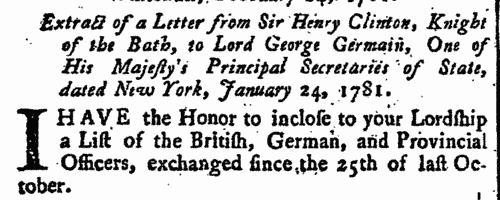Merida Surname Ancestry ResultsOur indexes 1000-1999 include entries for the spelling 'merida'. In the period you have requested, we have the following 4 records (displaying 1 to 4): Buy all | | | Get all 4 records to view, to save and print for £22.00 |
These sample scans are from the original record. You will get scans of the full pages or articles where the surname you searched for has been found. Your web browser may prevent the sample windows from opening; in this case please change your browser settings to allow pop-up windows from this site. Scottish litigants, rebels and cautioners
(1585-1592)
The Privy Council of Scotland exercised a superior judicial authority in the kingdom, and consequently received and dealt with a constant stream of petitions, as well as dealing with the internal security of the state. This register of the council from 1 August 1585 to 31 July 1592, in the reign of king James VI, was edited by David Masson, and published under the direction of the Lord Clerk Register of Scotland in 1881. Some of the individuals mentioned are the complainants, those of whom they complained, and the sureties on both sides: at this period, some of the complainants are alleging serious attacks, often of a feuding nature. Many of the bonds entered into by the cautioners are promises to keep the peace towards such enemies. Failure to answer to the council when summoned was a serious contempt, leading to being denounced a rebel, with serious consequences. But 'horning' was also used in the pursuit of debts: there was no imprisonment for debt in Scotland, but a creditor could have an obstinate debtor ordered, in the sovereign's name, to pay what was due, failing which, the debtor could be put to the horn, denounced as a rebel, and imprisoned as a rebel. The main text (to page 774) is from the Acta Secreti Concilii, containing the minutes of the Privy Council, with intermixed Acta Proper (political edicts), Decreta (judicial decisions), Acta Cautionis (acts of caution) and Bands (registration of bonds). After that are printed some miscellaneous Privy Council documents from the same years: additional acts of caution (775-778); ordinances and acts anent the Borders and the North (779-814); and miscellaneous privy council papers (815-834). The sources most productive of names, the Acta Cautionis and Registration of Bands, are also the most repetitive in form, and are not transcribed verbatim and literatim: nevertheless, one of the editor's rules was for 'All proper names and names of places occurring in the originals to be preserved in the abstracts without exception, and in the exact original spelling.'
MERIDA. Cost: £4.00.  | Sample scan, click to enlarge

| Deaths, Marriages, News and Promotions
(1771)
Death notices and obituaries, marriage and birth notices, civil and military promotions, clerical preferments, and bankrupts, as reported in the Gentleman's Magazine. Mostly from England and Wales, but items from Ireland, Scotland and abroad.
MERIDA. Cost: £4.00.  | Sample scan, click to enlarge

| British officer prisoners
(1780-1781)
Sir Henry Clinton at New York 24 January 1781 transmitted to lord George Germain (one of king George III's Principal Secretaries of State) this list of British officers, prisoners with the Americans, exchanged since 25 October 1780. The names are arranged by rank, and then by regiment.MERIDA. Cost: £6.00.  | Sample scan, click to enlarge

|  Sailors and marines on H. M. S. London in the Crimean War
(1854-1856) Sailors and marines on H. M. S. London in the Crimean War
(1854-1856)
Sebastopol in the Crimea was the great Russian naval arsenal on the Black Sea. A combined assault by British, French and Turkish troops resulted in the reduction of Sebastopol and led to the Treaty of Paris of 27 April 1856, guaranteeing the independence of the Ottoman Empire. By Admiralty Order the Crimea Medal was awarded to sailors and marines present during the campaign, between 17 September 1854 (the first landing at Eupatoria) and 9 September 1855 (when the allies secured Sebastopol). The sailors' medals were mostly delivered to them on board ship in the course of 1856; the marines' medals were sent to their respective headquarters for distribution. The remarks as to distribution in this medal roll therefore give more specific information as to the whereabouts of the sailor recipients in 1856 than about the marines. Her Majesty's Ship London, a 90-gun sailing ship, took part in the assault. Four clasps to this medal were awarded to the men present in the actions at Sebastopol itself, Inkerman, Balaklave (Balaclava) and (the sea of) Azoff, but the recipients of these clasps are recorded on separate rolls, not part of this index, but indexed on this site.MERIDA. Cost: £8.00.  | Sample scan, click to enlarge

|
Research your ancestry, family history, genealogy and one-name study by direct access to original records and archives indexed by surname.
|







